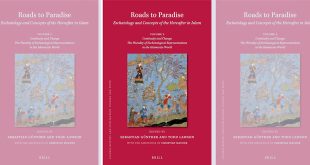This Article addresses the animated and evolving role that Shari’a, and Shari’a conceptions play in the contemporary world. There are various manifestations of this evolving role in the often dynamic, subtle, highly negotiated, and far from formalistic ways that Shari’a is animated in today’s world.
There are three main points that writer will address in this Article. First is to provide some insight into the various ways that Shari’a has been manifesting in the recent revolutions sweeping through the Arabic-speaking world, while at the same time contrasting the rather curious case of the various anti-Shari’a legislations proposed in parts of the United States, as well as some of the anti-Shari’a European discourses taking place. Second, the writer will address two basic conceptualizations of Shari’a that we find historically not just persistent, but historically competing and often wrestling for space. Although these conceptualizations have clear points of demarcation and delineation, they are quite broad and disagree in some fundamental and basic assumptions, particularly in epistemological, as well as ontological and deontological, assumptions; Finally, writer will address the way that the assumptions of each of these conceptualized perspectives or schools of thought in Shari’a have expressed themselves in various ages and historical contexts. Indeed, we find that there are very particular attributes or particular characteristics to the way that each conceptualized view of Shari’a expresses itself in various historical contexts.
Bibliographic Information
Title: Conceptualizing Shari‘a in the Modern State
Author: Khaled Abou El Fadl
Published in: Villanova Law Review, v.56, no.5, 2012 May, p.803-817
Language: English
Length: 14 pages
 Ijtihad Network Being Wise and Faithful Muslim in the Contemporary World
Ijtihad Network Being Wise and Faithful Muslim in the Contemporary World
